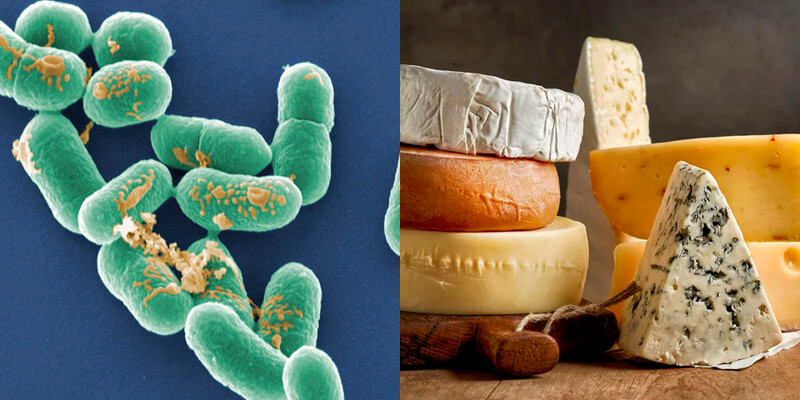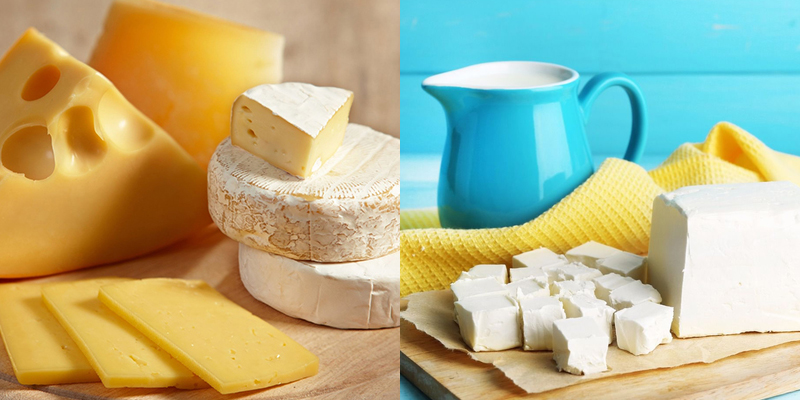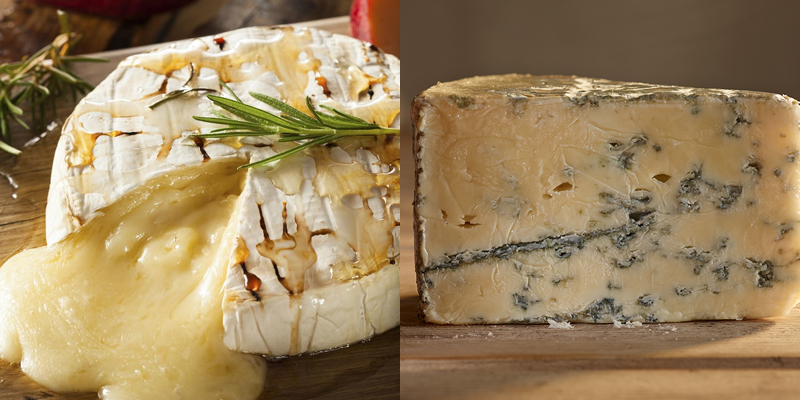What is Listeria Bacteria?
The full name is Listeria monocytogenes, a microorganism that causes very dangerous food poisoning. Especially in pregnant women, newborns, the elderly, and immunocompromised individuals, the infection rate is not high (about 0.7 cases per 100,000 people), but the mortality rate is very high, up to 20-30%.
Listeria monocytogenes bacteria cause a disease called Listeriosis, which is transmitted through food consumption. While Listeriosis does not significantly affect the mother’s health, it is extremely dangerous to the fetus.
In the early stages of Listeriosis, a few symptoms similar to the flu may appear, making it challenging to distinguish and detect. In the long term, it can lead to the risk of miscarriage, preterm birth, or stillbirth.
 Some types of cheese containing Listeria bacteria can lead to the risk of miscarriage, preterm birth, or stillbirth.
Some types of cheese containing Listeria bacteria can lead to the risk of miscarriage, preterm birth, or stillbirth.
Can Pregnant Women Eat Cheese?
Cheese is a source of Calcium, Protein, Vitamin B12, and essential minerals for both mother and child, promoting healthy bones, teeth, and heart health.
-
Pregnant women should include cheese in their daily diet to provide adequate nutrition for themselves and their babies. However, Listeria bacteria thrive in moist environments, so it is recommended to choose hard cheeses or those made from pasteurized milk.
-
Hard or smoked cheeses such as Caerphilly, Cheddar, Cheshire, Derby, Double Gloucester, and Edam are yellow or white with a mild flavor, neither too strong nor too bland.
-
Soft cheeses that have been processed or made from pasteurized milk include cream cheese, goat cheese, Mascarpone, Mozzarella, Quark, and Ricotta. They are white or light yellow with a gentle milk aroma and are easy to use in various dishes.
For further reference:
These two groups of cheese are safe for pregnant women and beneficial for the fetus’s development.

Types of Cheese Pregnant Women Should Avoid
Soft cheeses made from sterilized milk or non-sterilized milk, such as sheep’s milk cheese, Brie, Cambozola, and Camembert.
Although they have a delightful aroma and rich, creamy taste, they may harbor Listeria bacteria, which can be harmful to both mother and baby.
Blue-veined cheese with green or blue veins and a distinctive flavor, such as Wensleydale, Shropshire, Danish, Dolcelatte, and Gorgonzola. This group of cheeses is very popular, especially in European and American cuisine. However, during production, bacteria are added, and the high moisture content creates an ideal environment for Listeria bacteria to thrive.

Precautions When Using Cheese
Cheese is nutrient-dense, and a small portion of about 5.2g contains 0.62g of protein, 1.2g of fat, and 0.21g of carbohydrates, along with other vitamins and minerals. Therefore, mothers need to balance the nutrients between cheese and other foods.
-
It is best for mothers to consume a maximum of 30g of cheese per day.
-
Cheese should be consumed during breakfast or lunch to avoid digestive issues and insomnia.
-
Do not combine cheese with other high-protein foods such as eggs, crab, beef, or lamb.
-
Cheese should be treated as a snack or divided into smaller portions throughout the day to be paired with other foods. This helps the body absorb nutrients more efficiently.

Nutrition during the first three months is crucial for pregnant women and the fetus. Learn more about it on our website.
While cheese provides excellent nutrition for mothers and babies, it is essential to consider the type of cheese purchased to avoid adverse health effects. For further insights, you can also refer to our article on this topic.





































